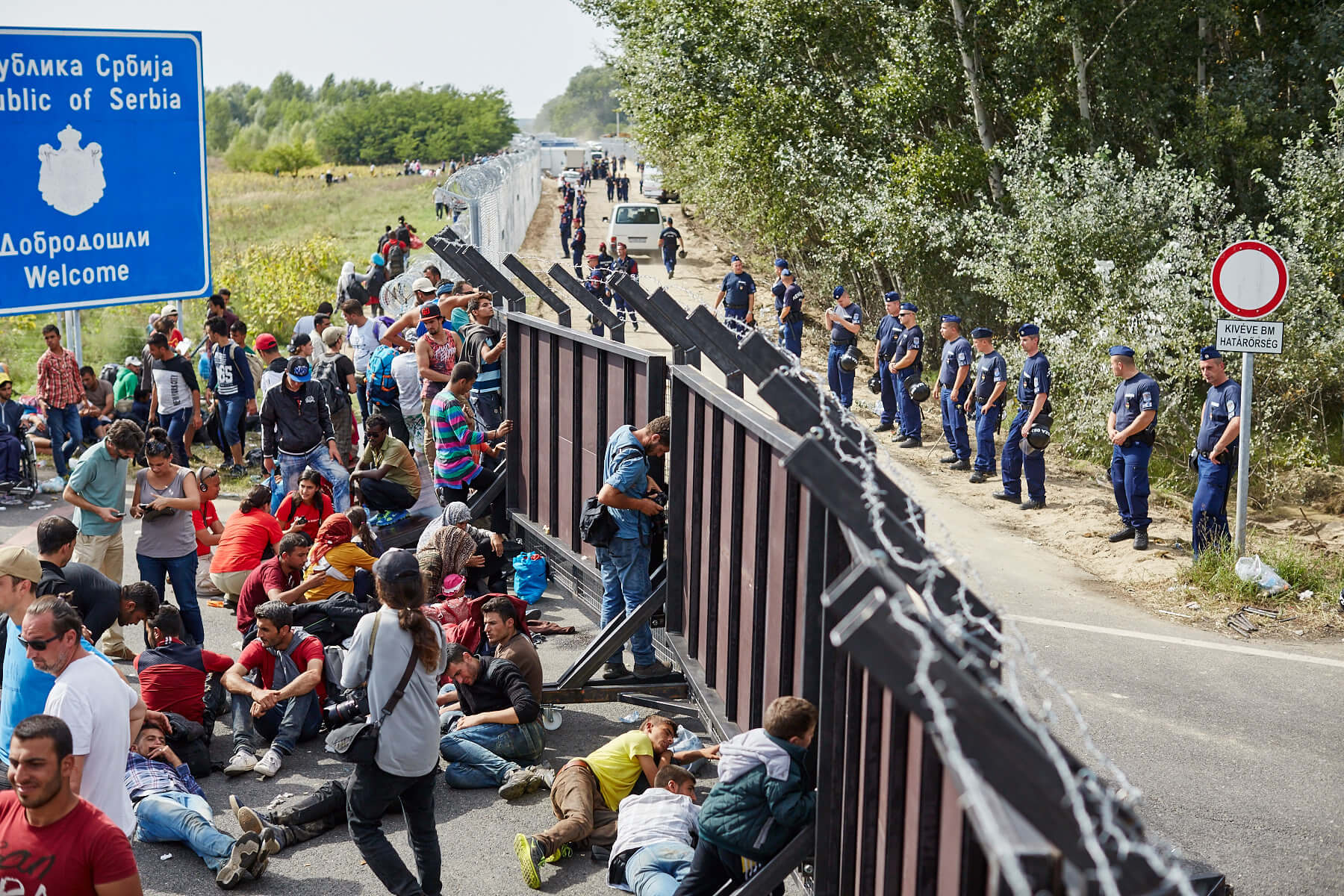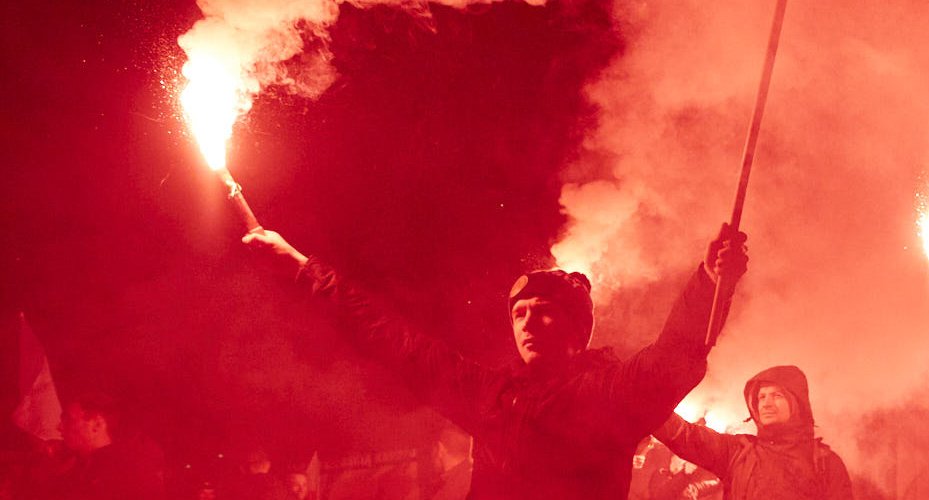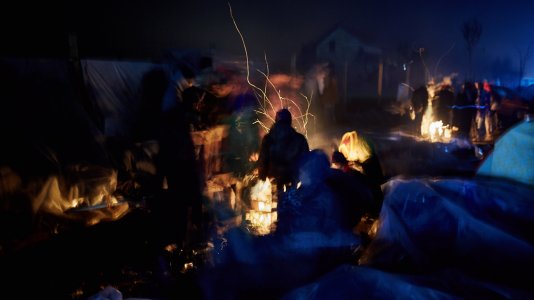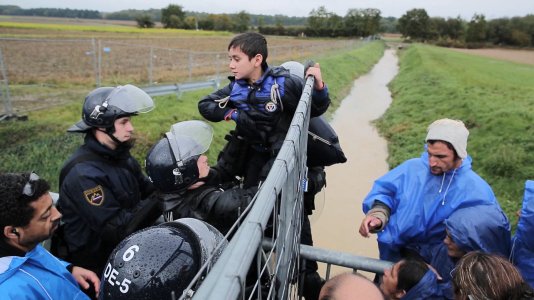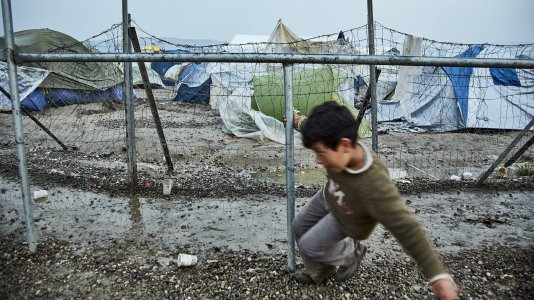There are some issues in which, in contrast to others, most of the former SFR Yugoslavia countries are not falling behind compared to other countries of Europe. One of those issues is, of course, the new nationalism which is widespread over the whole Europe and its frequency is dependant on the country and the region in which it is manifested.
As in other European post-socialist countries, right-wing politics was the most usual orientation of the new governments, which in the case of SFRY was disastrous and resulted in a war which lasted for almost five years. That re-evocation of nationalist feelings, which dated up to before the World War II, directed an emergence of some new right-wing organization and it also prepared the grounds for those organizations and circles which remained cryptic during the reign of socialist regimes.
Overall, right-wing organizations in the former SFRY countries are small in number but are visible in the media due to occasional public excesses. Bigger excesses usually take place as a reaction to events like Pride Parade, some important political decisions, like delivering war crime suspects to the International Criminal Court in Hague, and before/after/during football games and acts and violence. What is especially common to all far right organizations in all countries of the former SFRY is intolerance towards Roma people. This intolerance is occasionally expressed through usually minor attacks, physical and verbal, though some of those attacks resulted in murders, where the perpetrators, usually, remained unknown.
Serbia
When it comes to Serbia, some organizations have been banned since the 2000’s, such as National Socialist organization, Nacionalni stroj, and far right organization Obraz. Nacionalni stroj was banned in 2011 by the Constitutional Court of Serbia on the accounts of promoting racial hatred.
Nacionalni stroj got media attention firstly in 2005 after a several anti-semitic excesses involving writing graffiti and spreading propaganda posters, targeting Jewish cemetery in Belgrade and human rights organizations. In the same year several members of Nacionalni stroj, including the leader and founder, were present at an anti-fascist round table at the Faculty of Philosophy in Novi Sad, where they physically and verbally attacked some of the participants causing disruption.
Otačastveni pokret Obraz was a clerical nationalist organization, founded in 2000. Besides from organizing and attending nationalist rallies across the country, it has been found responsible for organizing riots targeted against Belgrade Pride Parade in 2010, in which around 150 policemen and few dozens of civilians were heavily injured, and riots prior to Pride Parade in 2009, which was one of the main factors which caused the cancellation of the Parade that year. In 2012 Obraz was banned on the account of previously mentioned activities and, generally, for promoting hate speech.
On the other hand, there are also some right-wing organizations which are still active and occasionally present in the media, such as SNP Naši 1389/SNP 1389/Naši, Srbska akcija and Srpski nacionalisti.
Srpski Narodni Pokret Naši 1389 is an nationalist, traditionalist/pro-monarchist and clerical organization which mainly opposes to the accession of Serbia to the European Union and NATO. The organization was being hold responsible and trialed for many violent acts and, generally, for promoting racial hatred and violation of human rights in the last year, until the Constitutional Court decided to drop the charges. SNP Naši, as well as Obraz, is responsible for making lists, in the fashion of Nacionalni stroj, of “anti-Serb” (or “traitorous”) organizations and media in Serbia and demanding their ban. SNP Naši were making lists also for “anti-Serb” political parties and NGO’s, especially for parties in Autonomus Province of Vojvodina. On several occasion they were accused of burning the flag of Vojvodina and even demolishing offices of some parties in Vojvodina, opposing the autonomy of that province. Also they had a campaign against the Pride Parade being held in Serbia in the past few years and many rallies against the delivery of suspects for war crimes to the International Criminal Court in Hague, Netherlands. In the beginning of this year, the process against SNP Naši was again started by the Constitutional Court and the jury is still considering the case.
Srbska akcija (Serbian Action) is a clerical nationalist organization, founded in 2010 and active in the south of Serbia. Their ideology is based on the conceptions of Dimitrije Ljotić, minister in the Kingdom of Yugoslavia and leader of the ZBOR, fascist and conservative nationalist organization. Besides Orthodox Christian symbols, they incorporated the Celtic cross, which puts them more to the side of National Socialism. Their actions include wide range of activities, from destroying antifascist graffiti, spreading anti-communist propaganda to constantly reminding the public of the actions of the Croatian army against Serbs during the 1991-1995 war.
Dveri Srpske is a clerical right-wing political movement which promotes nationalism, Euroscepticism and anti-globalism. The movement tends to declare themselves as pro-natalist and anti-LGBT, constantly insisting on the struggle against the population decline in Serbia, choosing a slogan for their politics “For the Life of Serbia” and dubbing their politics as “Family Politics”. They have organized many protests against LGBT community and Pride Parade in particular, most notably “Family Tread” on the day when the 2010 Parade took place. Being close to the Serbian Orthodox Church, they enjoy the constant support by the Church and it is also known that some of their members work in the SOC. They have also organized several rallies against the delivery of suspects for war crimes to the court in Hague in the past six years. More recently, the movement has taken a negative stance towards GMO.
As in other countries, branches of international Neo-Nazi organizations are formed and active in Serbia, but rarely present in the media. Such organizations are Blood and Honor and Combat-18.
Ljubomir Delevic
















